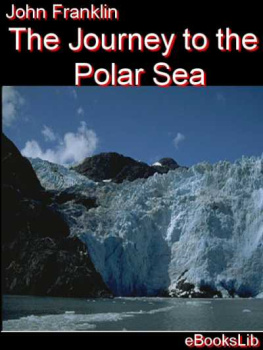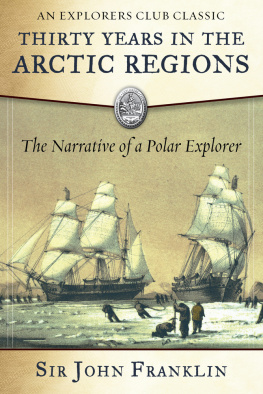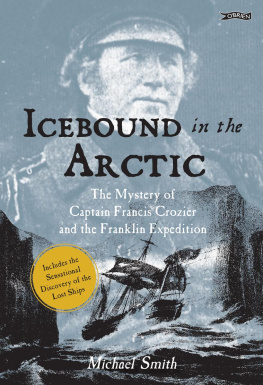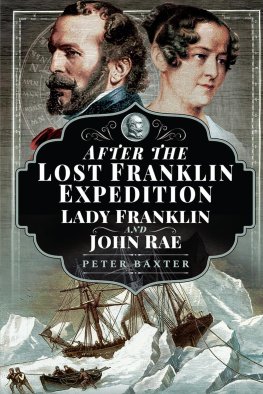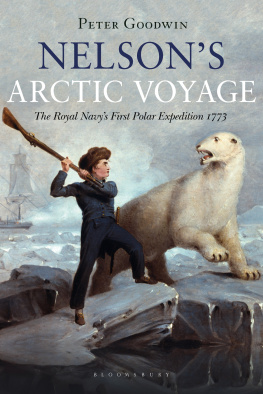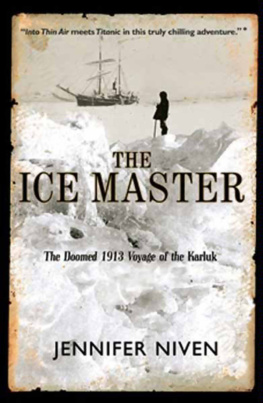

Explorers Club Classics also available: The Worst Journey in the World by Apsley Cherry-Gerard A Journey for the Ages by Matthew B. Henson Famous First Flights by Lowell Thomas and Lowell Thomas, Jr. With Lawrence in Arabia by Lowell Thomas The Shipwreck of the Whaleship Essex by Owen Chase Thirty Years in the Arctic Regions by Sir John Franklin North Pole Legacy by S. Allen Counter

Foreword Copyright 2018 by Geoffrey E. Clark
First Skyhorse Publishing edition Copyright 2018
Originally published in 1929 by the Bobbs-Merrill Company
All rights reserved. No part of this book may be reproduced in any manner without the express written consent of the publisher, except in the case of brief excerpts in critical reviews or articles. All inquiries should be addressed to Skyhorse Publishing, 307 West 36th Street, 11th Floor, New York, NY 10018.
Skyhorse Publishing books may be purchased in bulk at special discounts for sales promotion, corporate gifts, fund-raising, or educational purposes. Special editions can also be created to specifications. For details, contact the Special Sales Department, Skyhorse Publishing, 307 West 36th Street, 11th Floor, New York, NY 10018 or .
Skyhorse and Skyhorse Publishing are registered trademarks of Skyhorse Publishing, Inc., a Delaware corporation.
Visit our website at www.skyhorsepublishing.com .
10 9 8 7 6 5 4 3 2 1
Library of Congress Cataloging-in-Publication Data is available on file.
Cover design by Tom Lau
Print ISBN: 978-1-5107-3521-7
Ebook ISBN: 978-1-5107-3522-4
Printed in the United States of America
CONTENTS
ACKNOWLEDGMENTS
The Outpost of the Lost by David L. Brainard holds a prominent place in the literature of Arctic Polar exploration. The Explorers Club is proud to publish our edition of this book in collaboration with Jay Cassell, Editorial Director at Skyhorse Publishing. Adolphus Greeley, who led the Lady Franklin Bay Expedition, and author David L. Brainard were distinguished members of The Explorers Club. They both survived the harsh and tragic events that unfolded.
A special thanks goes to Explorers Club President Ted Janulis for his enthusiasm and support for this addition to our Classics Series. Geoffrey E. Clark graciously wrote a new introduction for this edition and contributed additional material. Thanks also go to Executive Director, Will Roseman; Curator of Collections, Lacey Flint; George Gowen; and Veronica Alvarado.
Jay Cassell understands and honors The Explorers Clubs commitment to keep in print books representing excellence and challenge in exploration.
Lindley Kirksey Young, The Explorers Club
Spring 2018
FOREWORD BY GEOFFREY E. CLARK
IN THE summer of 1876, an eighteen-year-old youth from a tiny town in upstate New York left home to attend the Centennial Exhibition in Philadelphia. According to his family history,
He had a fine time viewing the wonders that heralded the arrival of the Machine Age and came away marveling how much the inventions had improved the world for people to work and live in. At New York City he had to change cars. He reached in his pocket for money to buy a ticket; there was no money. Too proud to write home for funds, the bankrupt sightseer took a ride on the free ferry to that ran to the United States Army Post on Governors Island and joined the Regular Army. Changing into a uniform, he found a ten-dollar bill [worth $250 in todays dollars] hidden away in the pocket of his civilian shirt. But he was in the army nowPrivate David L. Brainard.
Whether by a stroke of misfortune or an impulse to venture beyond his rural home, his enlistment lead to his participation as a hero in what is arguably the most important (and most tragic) episode in the history of American polar exploration: The Lady Franklin Bay Expedition of 1881-84, colloquially known as The Greely Expedition.
Private Brainard was posted to the far west where he participated in the so-called Indian Wars, rising over a span of only three years to the rank of sergeant. He saw action in several fights and late in life was awarded one of only two Purple Heart medals for wounds suffered in the Indian campaigns. If his motivation for joining the army was adventure and travel, the Wild West was apparently insufficiently challenging. In 1879, he volunteered to serve as a member of an arctic expedition to establish a Polar Colony only 450 miles from the North Pole, in what is now the northern-most part of Canada.
This ambitious and perilous project was the brainchild of a Captain Howgate of the US Army Signal Corps. It can be seen as an expression of the expansionist impulse that arose in the United States after the Civil War and the closing of the American frontier. Howgate promoted the enterprise as a US Army project. Federal funding was withdrawn at the last moment when government surveyors found his chosen ship, the Gulnare, unfit for service, but Howgate sent the ship north with private support. Presumably Brainard was already detailed for service on the voyage and departed as the only member of the military on board. On arrival in Greenland after a rough passage, the findings of the surveyors proved correct. Following the better part of the summer spent repairing serious damage, the Gulnare returned to the United States. Meanwhile, Brainard obtained critical experience in dealing with the arctic climate and its inhabitants.
Howgate was undeterred in pushing for his colony and by 1880 had found an additional, more serious rationale for government funding. An Austrian scientist and arctic explorer, Carl Weyprecht had convened an international congress in 1877 to discuss the problem of finding out what conditions prevailed in the high polar regions, which had heretofore defied all attempts at direct exploration. The congress organized an ingenious scheme involving the cooperation of fourteen nations to establish stations as far north as possible, and there to collect an enormous amount of data using a detailed protocol that required the collection of many meteorological and physical measurements every four hours around the clock for at least a year. These large databases were then to be correlated to deduce conditions at the North Polea massive undertaking in the pre-computer era. American scientists lent their support to this International Polar Year, and in the end the federal government committed to establishing two research stations, one at Barrow, Alaska and the other, by far the farthest north, at the site proposed by Howgate. This was at Discovery Harbor in Lady Franklin Bay, where a British expedition had wintered over in 1875-76 and had established the record for The Furthest North, an honor held by Great Britain for over three hundred years. Thus the expedition had two objectives. The public objective was to undertake a serious enterprise to obtain data in cooperation with the international scientific community. Just as important but never officially stated was the goal of extending the reach of American exploration and wresting the record for The Furthest North from the British.
American participation was put under the command of the US Army Signal Corps, which at that time was responsible for running the US Weather Bureau. A civil war veteran and Signal Corps officer, First Lieutenant Adolphus W. Greely was put in command of the expedition to Lady Franklin Bay. When it came to putting together a party of military men and civilian scientists, David Brainard was an obvious choice, because of his demonstrated leadership abilities and the fact that he had previously volunteered for arctic service. Out of the twenty-four men chosen, Brainard was the only soldier with any arctic experience, the two others being Dr. Octave Pavy and photographer George Rice, who had also gone north to Greenland on the Gulnare in 1880. Greely chose Brainard to be first sergeant, meaning that he was the senior non-commissioned officer in command of the enlisted men.
Next page

